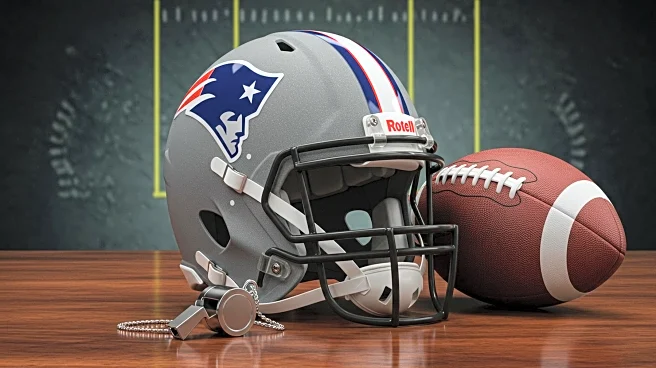What's Happening?
Clemson tight end Ian Schieffelin was arrested over the weekend on suspicion of driving under the influence (DUI). Head coach Dabo Swinney addressed the incident, stating that Clemson Athletics has a clear policy regarding such matters, and Schieffelin will face consequences, including missing some competition at the start of the season. Swinney expressed disappointment over the situation but noted relief that no one else was involved or injured. Schieffelin, who was a prominent figure in Clemson's basketball team from 2021 to 2025, transitioned to football as a tight end after completing his basketball eligibility. During his basketball career, he played 134 games, starting 99, and was instrumental in Clemson's successful seasons, including a record-tying Elite Eight appearance and a program-record 27 wins.
Why It's Important?
The arrest of Ian Schieffelin is significant as it highlights the challenges athletes face in maintaining personal conduct off the field. For Clemson, this incident could impact team dynamics and performance, especially at the start of the season. Schieffelin's transition from basketball to football was seen as a strategic move to bolster the team's roster, and his absence due to disciplinary actions may affect team strategy and morale. Additionally, this situation underscores the importance of adherence to team policies and the consequences of violating them, which can serve as a reminder to other athletes about the importance of personal responsibility.
What's Next?
As the situation develops, Clemson Athletics will likely continue to monitor Schieffelin's legal proceedings and adjust his participation in team activities accordingly. Coach Swinney and the team may need to address any potential disruptions caused by Schieffelin's absence and consider alternative strategies to fill the gap left by his suspension. The incident may also prompt discussions within the athletic department about reinforcing conduct policies and providing support systems for athletes to prevent similar occurrences in the future.
Beyond the Headlines
This incident may lead to broader discussions about the pressures faced by student-athletes and the support systems available to them. It raises questions about the balance between athletic commitments and personal life, and how institutions can better support athletes in managing these aspects. Additionally, it may spark conversations about the role of mentorship and guidance in helping young athletes navigate challenges both on and off the field.









